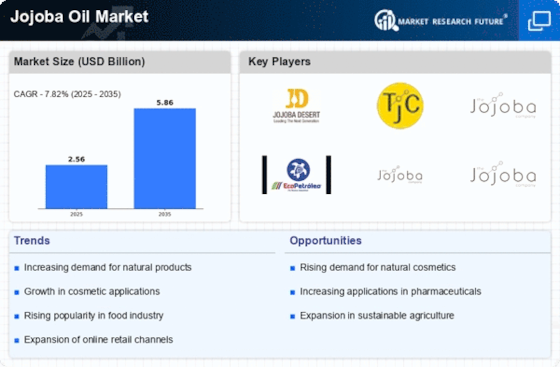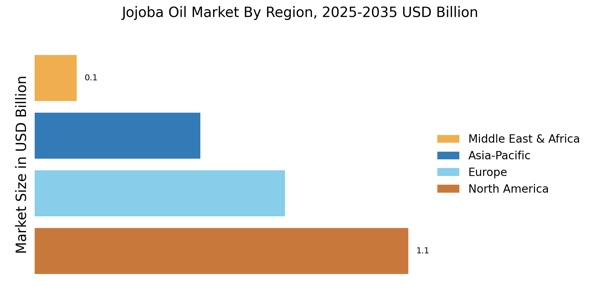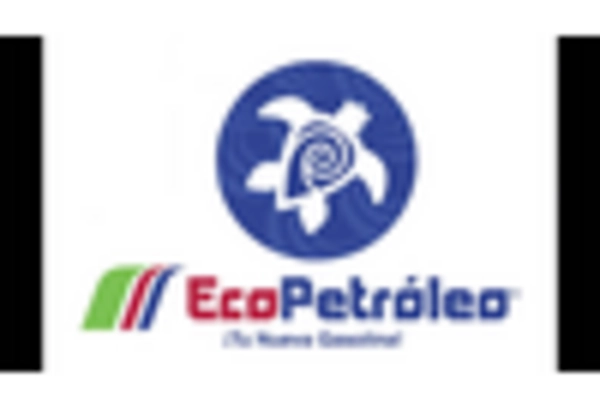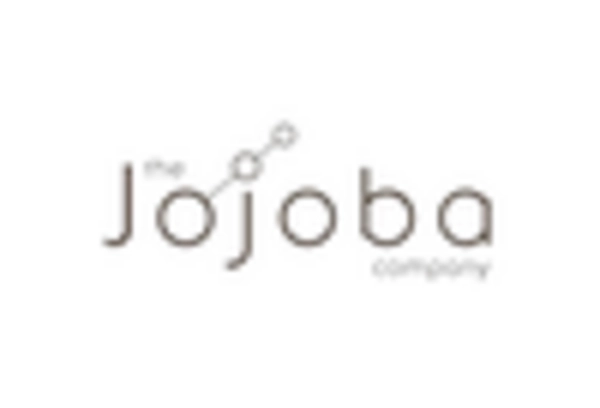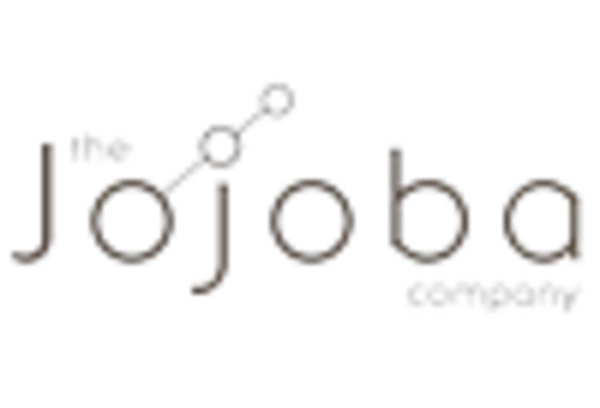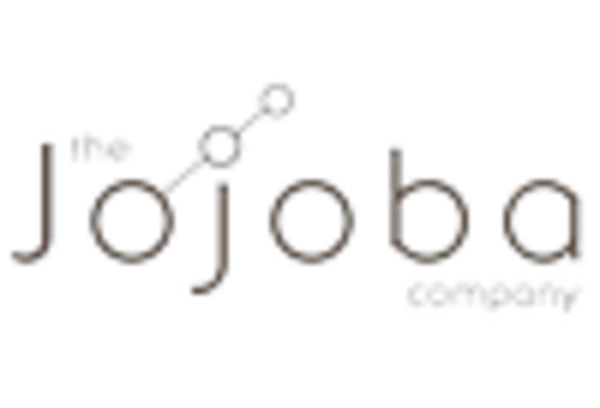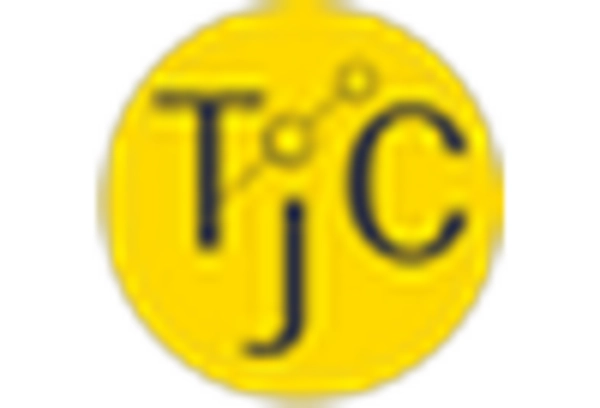Growth in the Nutraceutical Sector
The Jojoba Oil Market is witnessing growth due to the increasing incorporation of Jojoba oil in the nutraceutical sector. Jojoba oil is recognized for its potential health benefits, including its anti-inflammatory and antioxidant properties. As consumers become more health-conscious, there is a growing interest in natural oils that can be used as dietary supplements. The nutraceutical market has expanded significantly, with a projected growth rate of 10% annually. This trend suggests that Jojoba oil could play a crucial role in the development of new health products, thereby enhancing its presence in the Jojoba Oil Market. Manufacturers are likely to explore innovative applications of Jojoba oil, catering to the rising demand for health-oriented products.
Technological Innovations in Processing
Technological advancements in the extraction and processing of Jojoba oil are emerging as a key driver in the Jojoba Oil Market. Innovations such as cold-press extraction and supercritical CO2 extraction methods are enhancing the quality and yield of Jojoba oil. These technologies not only improve the efficiency of oil extraction but also preserve the oil's beneficial properties. As a result, manufacturers are able to produce higher-quality Jojoba oil that meets the increasing standards of consumers and regulatory bodies. The market for Jojoba oil is projected to grow by approximately 12% annually, driven in part by these technological improvements. This trend indicates that the Jojoba Oil Market is likely to benefit from enhanced product offerings and increased consumer trust.
Rising Popularity in the Cosmetic Industry
The Jojoba Oil Market is significantly influenced by the rising popularity of Jojoba oil in the cosmetic sector. Jojoba oil's unique composition, which closely resembles human sebum, makes it an ideal ingredient for skin and hair care products. The cosmetic industry has seen a marked increase in the incorporation of Jojoba oil, with a reported growth rate of around 15% annually. This trend is driven by the oil's versatility, as it is used in moisturizers, serums, and hair treatments. Furthermore, the increasing demand for cruelty-free and vegan products aligns well with Jojoba oil's natural origins, further propelling its adoption in the Jojoba Oil Market. As brands continue to innovate and expand their product lines, the market for Jojoba oil is poised for continued growth.
Sustainability and Ethical Sourcing Trends
Sustainability has emerged as a pivotal driver in the Jojoba Oil Market, with consumers increasingly prioritizing ethically sourced ingredients. Jojoba oil is derived from the seeds of the Simmondsia chinensis plant, which is known for its low environmental impact and ability to thrive in arid conditions. This characteristic makes Jojoba oil an attractive option for environmentally conscious consumers. Recent studies indicate that approximately 70% of consumers are willing to pay a premium for sustainably sourced products. As brands emphasize their commitment to sustainability, the demand for Jojoba oil is likely to rise, further solidifying its position in the Jojoba Oil Market. This trend not only benefits consumers but also supports sustainable farming practices, contributing to the overall health of ecosystems.
Increasing Consumer Awareness of Natural Products
The Jojoba Oil Market is experiencing a notable surge in consumer awareness regarding the benefits of natural and organic products. As consumers become more informed about the potential health risks associated with synthetic ingredients, they are increasingly opting for natural alternatives. This trend is particularly pronounced in the beauty and personal care sectors, where Jojoba oil is recognized for its moisturizing and anti-inflammatory properties. According to recent data, the demand for natural cosmetics has grown by approximately 25% over the past few years, indicating a robust market potential for Jojoba oil. This heightened awareness is likely to drive growth in the Jojoba Oil Market, as manufacturers respond to consumer preferences by incorporating Jojoba oil into their formulations.


